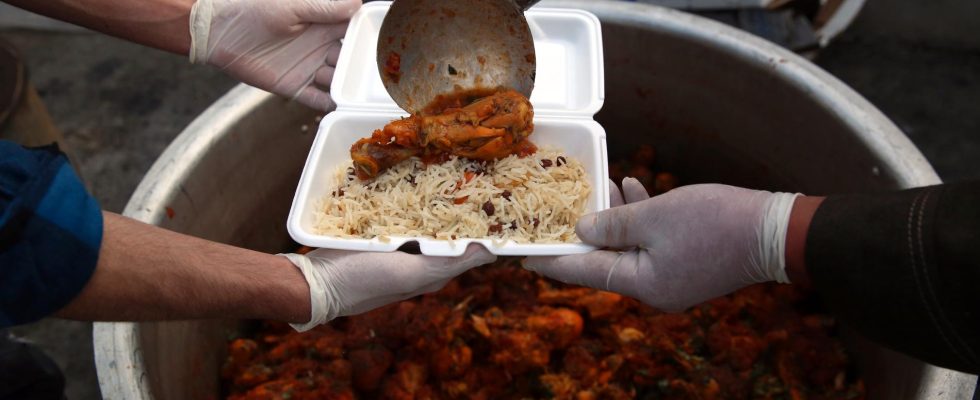Published: Less than 50 min ago
The Muslim fasting month of Ramadan has begun. But high food prices and bad economy mean that the celebration is toned down in many places in the world.
Dates, cakes, sweet juices and stews that have simmered for a long time. In Lebanon, 80 percent of the population will not be able to afford iftar, the meal that breaks the fast in the evening, according to the aid organization American Near East Refugee Aid (ANERA), according to the Al Jazeera news channel.
And in Indonesia, which has the world’s largest Muslim population, 70 percent of Generation Z youth plan to cut back on consumption during Ramadan.
Waive zakat?
Even in Kenya, where 17 percent of the population lives in extreme poverty, Ramadan is predicted to be toned down. Inflation has stuck at over nine percent since September and is a concern for large parts of the population.
Sheikh Juma Ngao, president of Kenya’s National Muslim Council, fears that many will forego zakat, the alms that devout Muslims must pay during Ramadan if they can afford it. And he is worried that the socializing that usually takes place when the fast is broken at sunset is threatened.
– We usually invite family members, but the bad economy risks putting an end to that. We pray to God that the tradition survives, he told Al Jazeera.
But in South Africa, the poor economy is seen as an opportunity to bring people closer together. According to Sheikh Mogamat Safwaan Sasman, a member of a council of Muslim leaders in Cape Town, “mass iftar” is becoming more and more common.
– Mosques actually encourage people to have iftar in the mosque instead of at home so that it (the food) will be enough for more people.
Needy families
The crisis also affects Muslims in the West. The city of New York in the United States, together with two Muslim charities, will distribute 7,500 iftar meals to needy families.
In Britain, Sohail Hanif, chairman of the National Zakat Foundation (NZF), says he has never seen anything like it. The organization receives a new request for zakat every 40 minutes, which is twice as much as in 2021.
Meanwhile, in 2022, when the cost of living began to rise, he saw a 30 percent increase in donations during Ramadan.
– There are definitely flashes of light. We help each other much more than before.
Facts
Ramadan
The Muslim year follows the moon and therefore the fasting month of Ramadan moves every year.
This year it falls between March 22 and April 21, when the holiday ends with the holiday of id al-fitr.
Faithful adults and healthy Muslims then fast during the hours when the sun is up.
By abstaining from food, drink and sex from dawn to dusk, Muslims must learn patience and humility, purify the soul and contemplate the commandments of the religion.
It is also a time for spending time with family and friends.
Anyone who is ill or has some other health condition that makes fasting harmful does not need to fast. In addition to the sick, pregnant women, children and the elderly can also be exempted.
Read more
